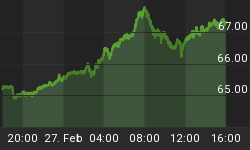A variation of this article appeared March 13, 2012 as an editorialin the Financial Times.
When Greece's woes first rattled the markets two years ago, the pundits predicted a collapse of the euro.
The resilience of the euro has been due to a number of factors, not least of which is that the eurozone as a whole has a broadly balanced current account. As such, a misbehaving bond market doesn't necessarily cause a plunge in the currency, as foreign buyers are not required to fund a deficit or protect against currency weakness.
The euro has also been on the other side of the Bernanke trade: the Fed's printing of trillions of dollars is a deliberate effort to weaken the US dollar in an attempt to promote economic growth. Conversely, with the European Central Bank showing more restraint, the euro has been stronger, yet that strength has exposed a host of problems.
A similar pattern was evident during the Great Depression, where those countries holding on to the gold standard longer had stronger currencies, but suffered painful fiscal and political consequences of trying to do the right thing.
The focus should be on making the financial system strong enough to stomach potential sovereign defaults. And, as no one else has been able or willing to step up to the plate, the ECB has been forced to take on the task.
Merk White Papers provide in-depth information into currency as an asset class.
Portfolio Benefits of The Currency Asset Class
The Currency Asset Class: A New Era of Investment Opportunity
The Archive:Merk White Papers
By charging only 1 per cent on unlimited 3-year loans, the ECB is allowing banks to reap substantial profits by buying higher yielding securities. This can be extremely profitable. In the US, the Fed brags about handing over $80bn in profit to the Treasury, neglecting to state the fact that the more money a central bank prints, the more securities it can buy and, thus, the greater the interest it earns. The ECB, though, "splits the coupon" with the banking sector, boosting their profitability.
For now, policymakers hope the ECB's elixir will continue to soothe the markets, but the fear of contagion is still a big concern. With Greece temporarily patched up, the focus may shift again to Portugal, Spain, and Italy. Policymakers in emerging markets have cause for concern, too, as European banks have been a key source of funding for these markets. Emerging market funding is often provided in US dollars, stoking contagion concerns for US markets. Prime US money market funds were all too willing to buy US dollar-denominated commercial paper issued by European banks.
Indeed, central bankers have ramped up their efforts, seemingly planning for the worst. The Fed introduced a currency swap line to alleviate US dollar funding concerns in Europe. The ECB conducted its 3-year long-term refinancing operations (LTROs). The Bank of England provided another dose of quantitative easing. The Bank of Japan pursues its newly anointed inflation target. These are all variations of printing money.
With all major countries printing money, the problems in the eurozone may ease for now. Add to that the large degree of short positions previously built up in the euro that still need to be wound down, and the single currency should do just fine for the time being.
There's a price to be paid, though: we don't see how the ECB, in three years' time, will be able to mop up the trillion-euro liquidity it has provided. The ECB has now introduced a structural rigidity into its monetary policy, akin to what the Fed is faced with. In many respects, central banks have disrupted the natural transition of market-ascribed economic health by imposing their colossal might (balance sheets) onto the markets. This should be alarming. Central bankers are increasingly manipulating rates all along the yield curve.
Such policies take away crucial economic gauges (market-based interest rates across the yield curve) from investors and policymakers. As result, policymakers can no longer rely on these metrics in setting appropriate monetary policy.
Politicians, too, no longer get market feedback to encourage reform. Spain has already indicated it will further soften its budget goals. Yet, without the ECB's liquidity provisions, the bond market might have responded with its own "encouragement" to run less of a deficit, by selling Spanish debt.
This is not just a European problem. Look at the proposed 2013 US Budget and it becomes clear that, without the encouragement of the bond market, policymakers may have little incentive to pursue fiscally sustainable policies. With its significant current account deficit, the US dollar may be much more vulnerable than the euro should US bond markets act up.
In the meantime, Greece is experimenting with a carrot and stick assortment of incentives. That approach may be doomed to failure as each time a target is missed the ire will be directed at creditors, most notably Germany. To move beyond planning for the worst, Greece and others must learn to own their own problems rather than rely on central banks and other people's money.
Please register for our upcoming Webinar on Tuesday, March 13, or sign up for our newsletter to be informed as we discuss global dynamics and their impact on currencies.We manage the Merk Funds, including the Merk Hard Currency Fund. To learn more about the Funds, please visit www.merkfunds.com.















